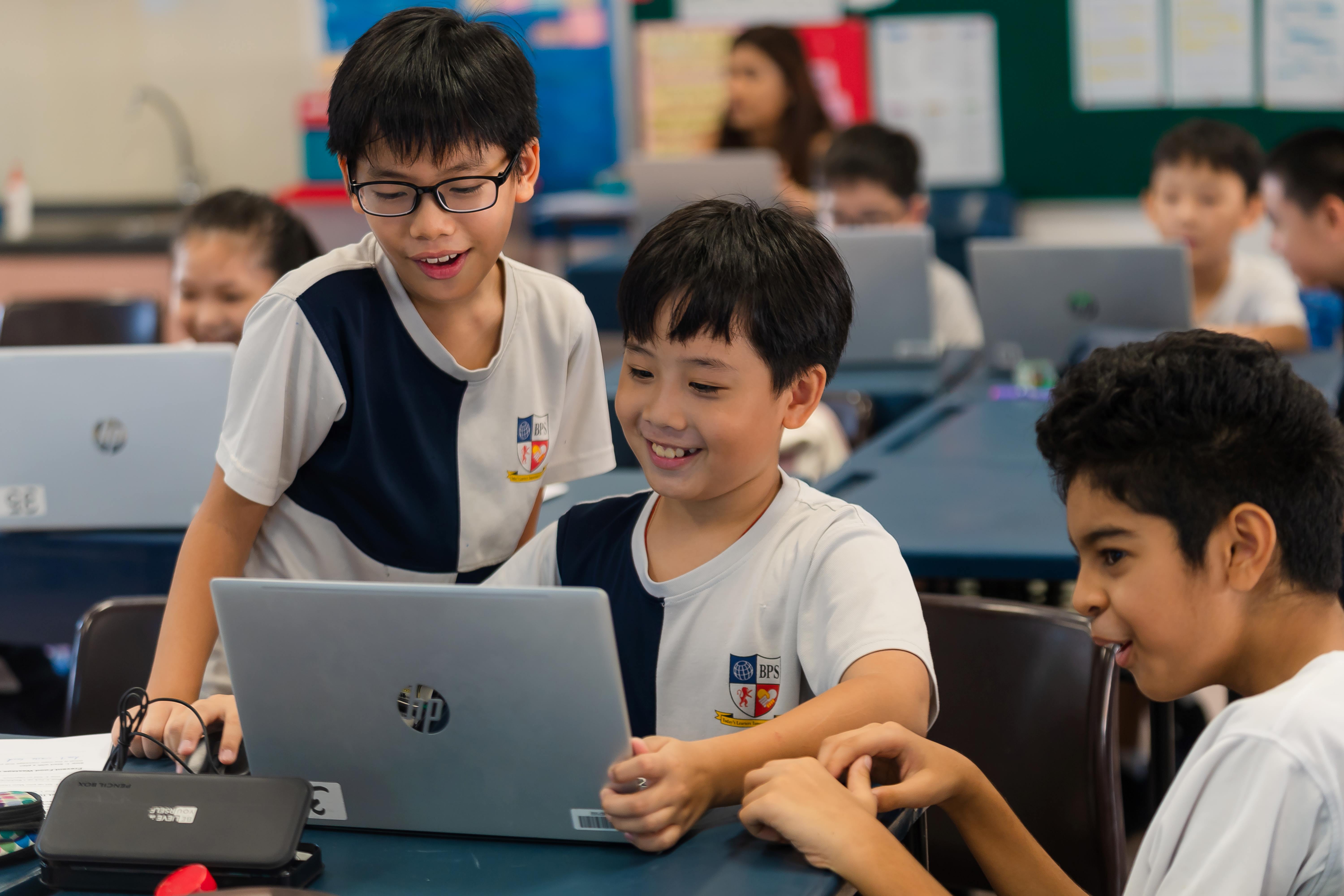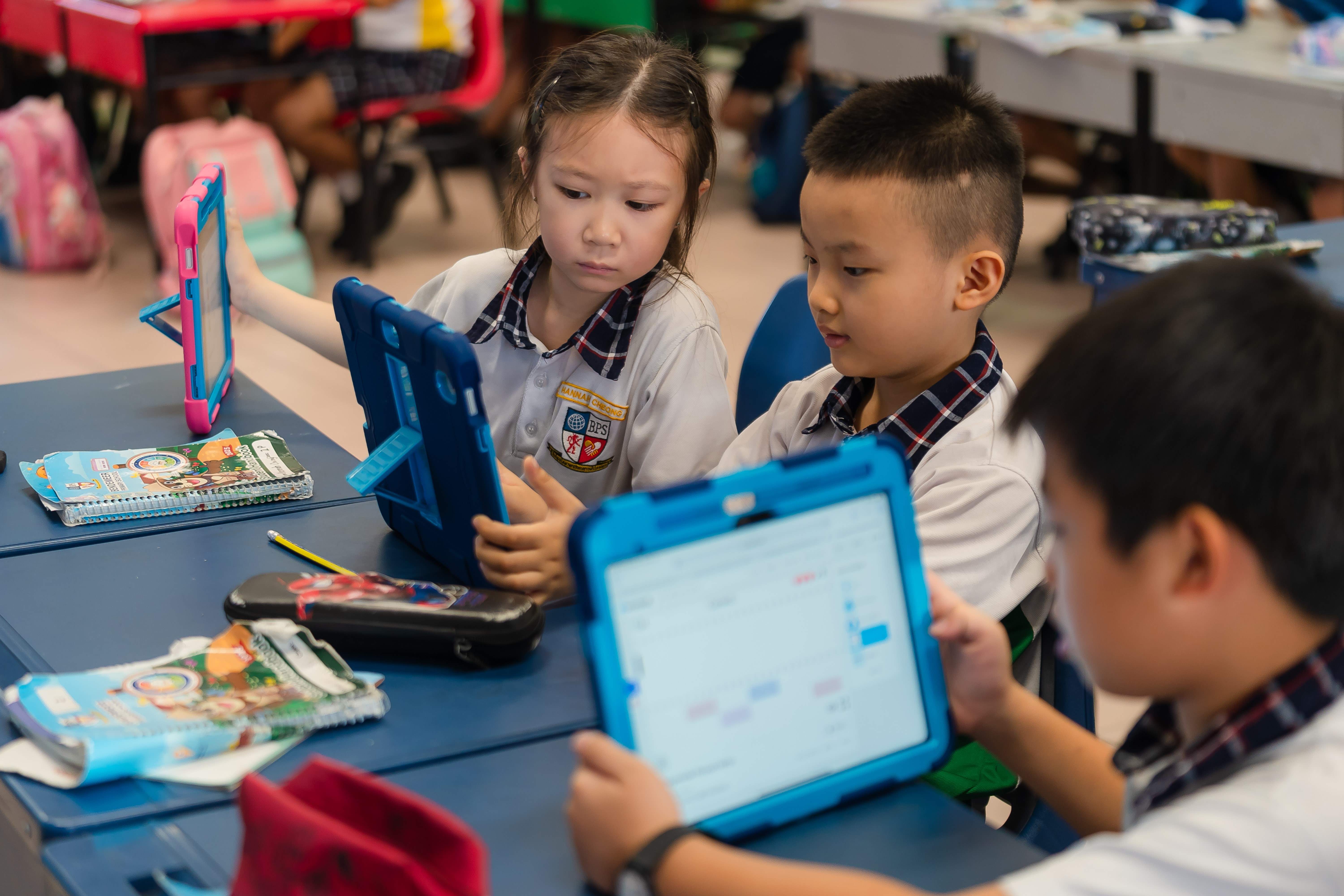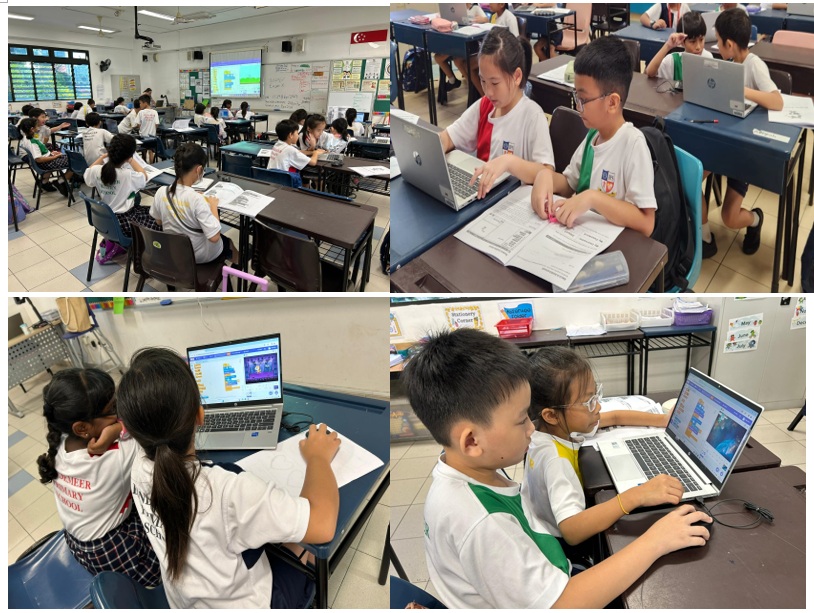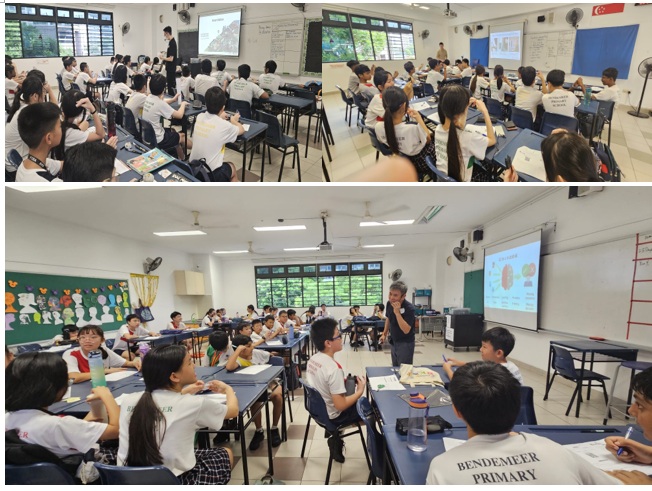Overview
INFORMATION COMMUNICATION TECHNOLOGY (ICT)
VISION
Future-ready and Digitally Responsible Learners
ICT @ BPS
The ICT department strives to harness ICT to transform the teaching and learning landscape in school. Aspiring for our students to become Future-ready and Responsible Digital Learners, the school has planned various ICT programmes that have been integrated into the curriculum and subject disciplines. These programmes aim to develop students’ competencies for self-directed and collaborative learning.
Programme Highlights/Enrichment Activities
Building Strong Digital Foundations
To support students’ learning and prepare them for future demands, Bendemeer Primary School provides structured ICT lessons across levels. These lessons focus on developing essential digital skills that enable students to learn confidently, use technology responsibly and apply digital tools meaningfully in their learning.
|
Level |
Core Skills |
|---|---|
|
Primary 1 & Primary 2 |
1. Learning parts of the computer – Hardware Awareness
|
|
Primary 3 & 4 |
1. Scratch Programming
|
|
Primary 5 & 6 |
1. P5 Code for Fun
|

|

|
|---|---|
|
Students engaged with online class activities |
Students using iPads for online class activities |
Blended Learning during Home Based Learning(HBL) lessons
In the digital era, it is important for our students to be equipped with the necessary knowledge, skills and dispositions to thrive in an interconnected, diverse and rapidly changing world. Hence, Blended Learning will be a key feature of the schooling experience to further develop students’ ability to be self-directed, passionate and life-long learners. Through Blended Learning, HBL lessons will complement teaching and learning in schools.
The main objectives of the HBL are:
1. To provide an alternative platform for continuous learning in
case of school closure due to emergencies.
2. To develop students to be self-directed and independent learners.
The school has stipulated certain days in the school’s calendar as HBL days as students need not attend school. They are expected to complete the online assignments found in SLS Portal assigned by their subject teachers.
Primary 3 & Primary 4 Scratch Coding Programme
The Primary 3 and Primary 4 Scratch Coding Programme at Bendemeer Primary School supports the EdTech Masterplan 2030 by developing students into digitally empowered future-ready learners.
Through hands-on coding using Scratch, students strengthen key MOE Digital Competencies, learning not just how to use technology, but why and how responsibly it can be applied to real-world issues.
Developing MOE Digital Competencies
Through the programme, students develop:
-
Computational Thinking – breaking down problems, sequencing instructions, and debugging their code
-
Creative Thinking & Innovation – designing original animations and games to communicate ideas
-
Communication & Collaboration – working with peers to plan, test, and improve their projects
-
Responsible & Ethical Use of Technology – using digital tools purposefully to promote sustainability and positive values
Learning with Purpose
-
Primary 3 students create Scratch animations centred on Zero Waste Management, using code to advocate habits such as reducing, reusing, recycling, and responsible consumption.
-
Primary 4 students design interactive Scratch games focused on Food Waste Management, encouraging players to make informed and sustainable choices about food usage and waste reduction.
Preparing Students for the Future
By applying coding skills to authentic environmental issues, students learn to:
-
Think critically and solve problems systematically
-
Persevere through trial, error, and refinement
-
Express ideas clearly through digital creations
-
See themselves as creators of technology, not just consumers
These learning experiences reflect Bendemeer Primary School’s commitment to developing students who are confident, responsible, and purposeful users of technology, equipped with essential digital competencies for the future.

Code For Fun @ BPS
Our Primary 5 students had an exciting and enriching experience during the Code for Fun Programme! Through the sessions, they explored the world of Computational Thinking and discovered how these skills can be applied in their daily lives.
Students learnt basic programming concepts such as events, loops, variables, and functions, while also strengthening their logical thinking and problem-solving abilities by breaking big problems into smaller, manageable steps.
A highlight of the programme was the hands-on activity where students worked in teams to program a dance using their Sphero robotic kits. This engaging task not only fostered teamwork and creativity but also allowed them to see coding come to life in a fun way!
The 10-hour workshop concluded with an introduction to Artificial Intelligence (AI), sparking students’ curiosity about how technology is shaping the future.

|

|
|
P5 Students working on dance program using their Sphero robotic kits |
|
AI for Fun (AIFF)
Primary 6 Post-Exam Programme

Building on this foundation, our Primary 6 students also took part in AI for Fun (AIFF) as a post-examination enrichment programme. AIFF provides students with meaningful and engaging learning experiences after exams, allowing them to explore AI concepts in an age-appropriate and accessible way.
Through interactive activities, students gained exposure to:
-
How AI works in daily life
-
The responsible and ethical use of AI
-
How technology can be used to solve real-world problems
AIFF value-adds to students’ learning by nurturing curiosity, critical thinking, and digital awareness, while preparing them for a future where AI plays an increasingly important role.
Together, Code For Fun and AI for Fun support Bendemeer Primary School’s commitment to developing future-ready learners who are confident, thoughtful, and responsible users of technology.
Micro:Bit Learning @ BPS
As part of the modular CCA programme, all P5 Students went through the Micro:Bits Coding Programme to encourage innovation, foster collaboration and empower students to create with technology. Students underwent training and built Smart Homes using smart sensors. The students created innovative smart homes with the Design Thinking approach. On the last day of their training, each group presented their smart homes and shared about the sensor they had incorporated in their smart homes. This programme had provided the opportunity to develop creative and innovative citizens of tomorrow.
Mobile Trail @ BPS
At Bendemeer Primary School, there are many interesting learning spaces. The mobile trails came about to make these learning spaces come alive and to extend learning beyond the classroom.
The Mobile Trail @ BPS aims to bring about the following:
1. Cultivation of 21st Century Competencies - Mobile trails help to develop the three domains of 21st Century Competencies – Civic Literacy, Global Awareness and Cross-Cultural Skills; Critical and Inventive Thinking; and Communication, Collaboration and Information Skills in our students.
2. Learning outside the classroom – Education comes alive when we step out of the classroom and explore real world applications and scenarios around us. This makes learning authentic.
3. Cross-disciplinary learning – ICT is harnessed as a tool to provide a multidisciplinary approach to learning. It helps students develop awareness that what we learn is not in isolation.
4. Changing face of education – Gone are the days of frontal teaching. Mobile trails engage students in independent and self-directed learning, resulting in a student-centric learning experience. Most importantly, it makes learning fun and engaging!
The Student Learning Space (SLS) is used as the main platform for mobile trails in the school. The portal allows many different forms of assessment and embedding of external web-based applications which offer resources, tools and features to complement teaching and learning. Both teachers and students find it easy to navigate and complete the trail.
DigitalAccess@Home
DigitalAccess@Home provides subsidised broadband and laptops/tablets to lower-income households to support their lifestyle needs, including work and social activities.
To find out more, please click here

